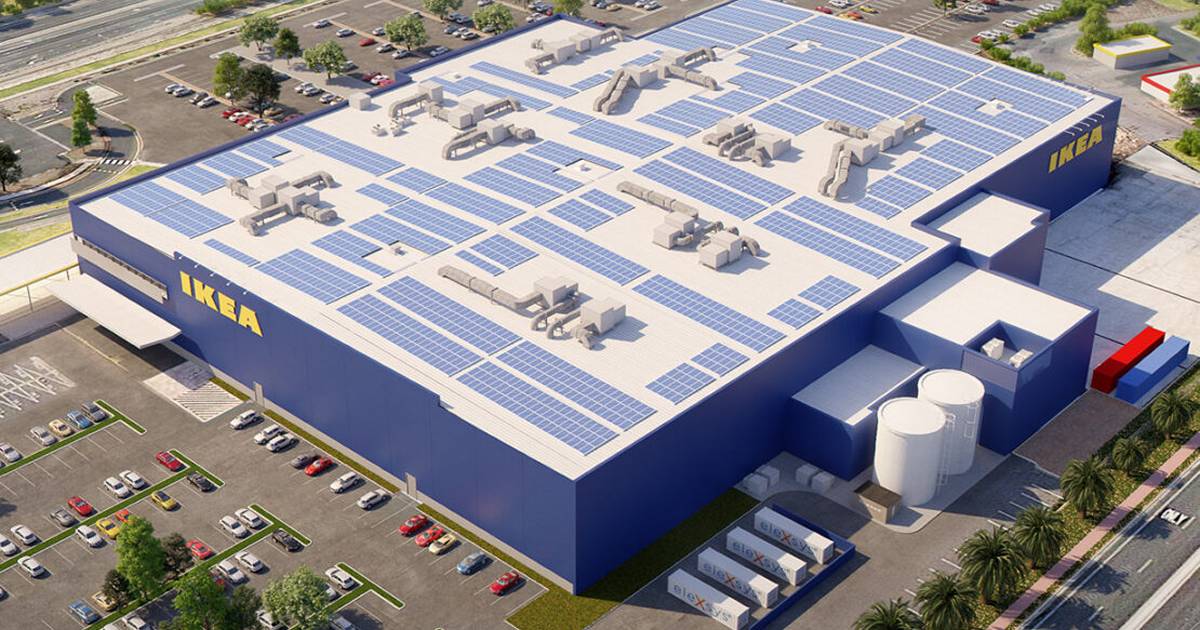
Artist’s impression of IKEA Adelaide solar + storage installation
The first solar panels have been lifted on to the rooftop of IKEA’s retail outlet in Adelaide as part of a major solar power + battery storage microgrid project at the site.
The 14,370 sq metre rooftop will host 1.2MW of solar power capacity, and a 3.4MWh battery system housed in three containers will be installed on-site. Another key element of the project is Planet Ark Power’s eleXsys Energy Management System (eEMS), which has been developed to dynamically manage network voltages and frequencies from behind the meter.
“It provides certainty to network operators like SA Power Networks that, as surplus energy is exported into the grid, voltages are kept within the range required to maintain network safety and security,” says Planet Ark Power.
The company says this also significantly reduces curtailment risks, which would result in lower returns on investment and increased payback periods.
IKEA will purchase electricity generated by the system through a Power Purchase Agreement (PPA) with owner and operator of the microgrid, Epic Energy. The arrangement will initially cover 70% of IKEA Adelaide’s electricity needs and energy stored in the batteries will be sold into the electricity grid via FCAS (Frequency Control Ancillary Services) and spot market trading, plus provide grid forming services to SAPN.
The $6.6 million project has been supported by the South Australian Government, which has kicked in $1.95 million – a commitment made three years ago. Planet Ark Power’s Jonathan Ruddick says solar and storage has dropped in price to such a degree since that in addition to avoiding some of the costs with pioneering such a project, similar new microgrids could “stand on their own two feet” without the need for government financial support.
More Solar (And Perhaps Hydrogen) To Come
The 1.2MW solar + 3.4MWh battery system is just the first stage of the project. It’s intended PV shade structures will also be installed across the IKEA Adelaide car park in order to sell more solar electricity into the grid and cover the remaining 30% of the store’s energy needs; resulting in IKEA Adelaide becoming 100% powered by on-site solar energy.
The initiative is part of the IKEA Australia Clean Energy Transformation Project, which seeks to see IKEA Australia powered by 100% clean energy, transition its delivery fleet to 100% zero-emissions and inspire IKEA customers to join a clean energy movement. Part of the Adelaide project also involves the installation of EV chargers.
Once the first two stages are complete – which is expected to be by 2025 – the project partners will then look into the viability of hydrogen energy being generated on site.
According to IKEA Australia’s 2020 Sustainability Report, IKEA has installed more than 920,000 solar panels at its sites around the world; with more than 20,000 PV modules installed at sites in Australia as at January 2020.

 RSS - Posts
RSS - Posts



Speak Your Mind